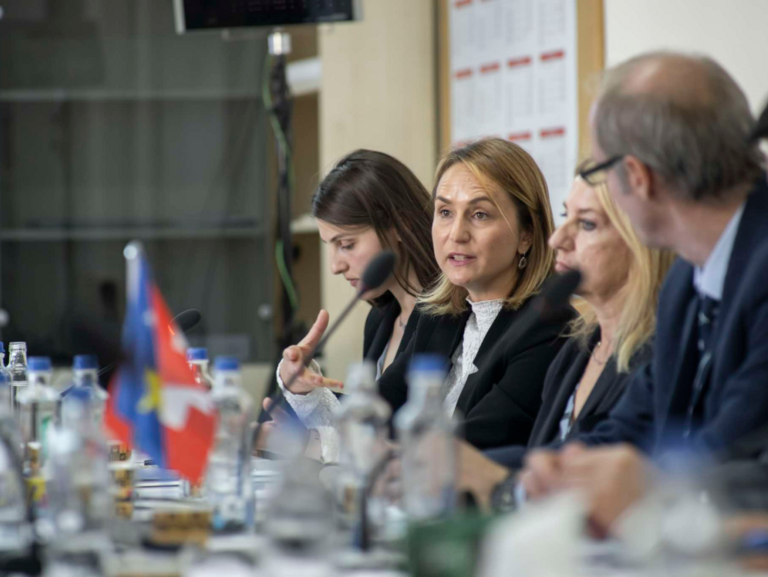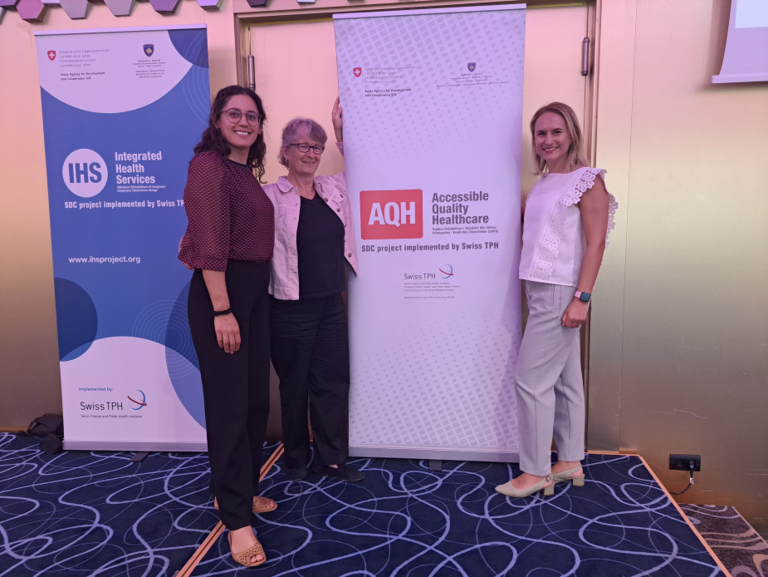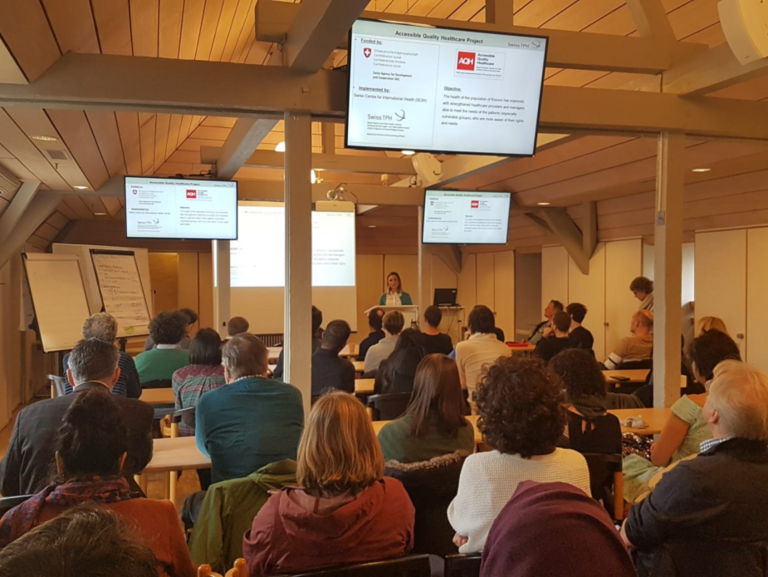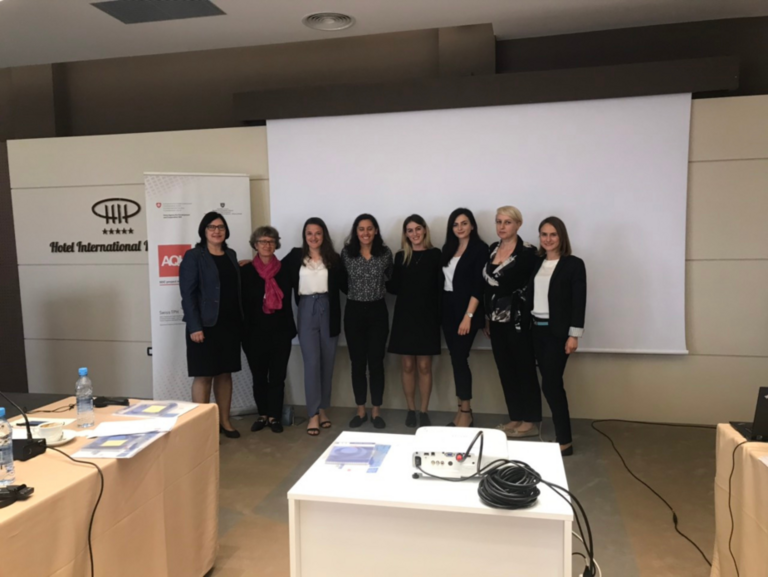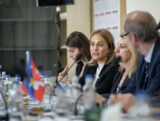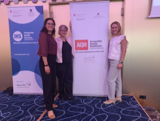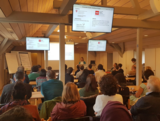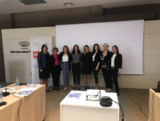Hello Ariana! Please introduce yourself.
I completed my PhD in Epidemiology and Public Health at Swiss TPH, under the supervision of Prof Nicole Probst Hensch. Currently, I work in Kosovo on the Accessible Quality Healthcare (AQH) project, which is implemented by Swiss TPH and funded by the Swiss Agency for Development and Cooperation. In my current role, I specifically coordinate the Kosovo Non-Communicable Disease Cohort (KOSCO study) and work to expand collaboration between Swiss TPH, the National Institute of Public Health in Kosovo, and the University of Prishtina.
One of my main motivations for working in this position is the opportunity to contribute to collaborative efforts that provide reliable data for policy-makers in Kosovo. This data plays a crucial role in supporting informed decisions that can improve public health by bridging the gap between science and policy.
Where does your enthusiasm for public health come from?
My passion for public health arises from the fact that scientific data can drive meaningful improvements in population health. By leveraging this data, we can make informed decisions in healthcare and design policies that genuinely address the needs of the community. Ultimately, this approach can lead to improved health outcomes and a better quality of life for the population.
Why did you choose to study at Swiss TPH?
The KOSCO study, led by Prof Nicole Probst-Hensch and set up by Dr Katrina Obas, was already running in Kosovo when I became involved. Its goal is to provide epidemiological evidence to support the control of non-communicable diseases (NCDs) in Kosovo and to guide policy and decision-making. To help grow the KOSCO team, we applied for the Swiss Government Excellence Scholarship (ESKAS), which I was granted. This gave me the chance to start my PhD at Swiss TPH under the mentorship of Prof Nicole, a well-known expert in cohort studies, which I felt very fortunate about.
I was also excited that my PhD would be linked to the AQH project in Kosovo, allowing me to study NCDs in more depth and from a scientific point of view. My main focus was to evaluate how effective behaviour change interventions are in preventing and controlling NCDs over a long term. We also assessed if participants improved their physical activity, diet, or Body Mass Index (BMI) thanks to health systems strengthening interventions.
"Swiss TPH didn’t just give me skills; it helped me grow into someone who works with purpose and a deep commitment to making a difference."
Can you share a memorable moment from your time at Swiss TPH?
One of my favourite memories from my time at Swiss TPH is a hike with friends in the Rigi Mountains. The view was breath-taking, and I’ll never forget the view of the mountain surrounded by three peaceful lakes. That moment made me feel calm, happy, and truly connected to nature.
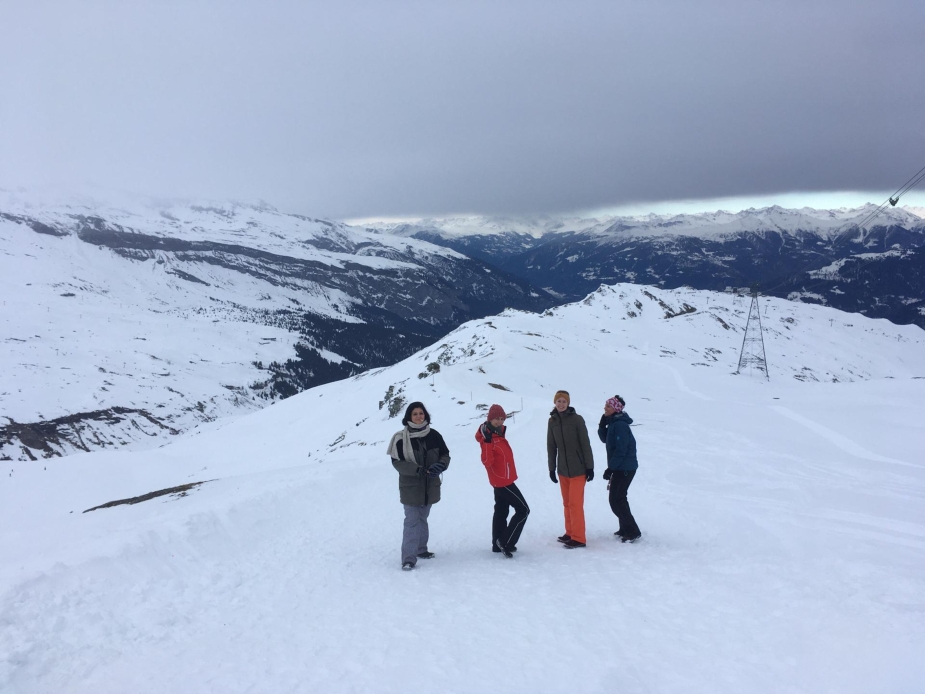
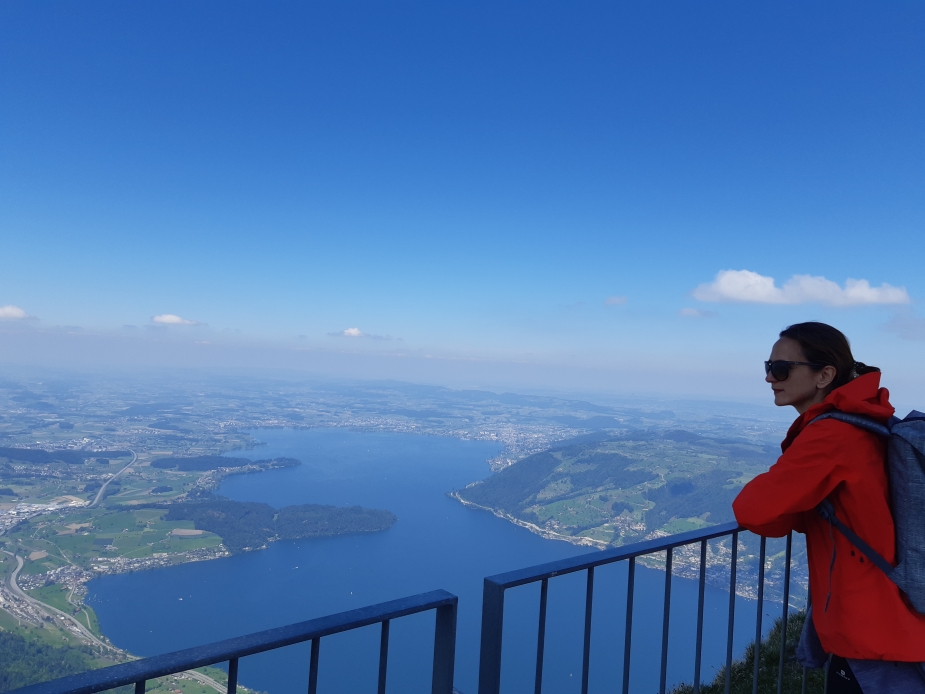
Looking back, what has been the biggest impact of your education at Swiss TPH on your life and career?
My education at Swiss TPH has had a huge impact on both my life and career. It gave me not only strong academic knowledge, but also helped shape the way I work and see the world. One of the biggest things I have learned is the power of being persistent – to keep going even when things get tough. More than that, it reminded me to do my work with joy and passion. Whether in research or fieldwork, I have learned that when you truly care about what you do, it shows – and it makes all the difference.
Swiss TPH didn’t just give me skills; it helped me grow into someone who works with purpose and a deep commitment to making a difference.
Describe a project or initiative you have been involved in since graduating that you are particularly proud of.
An initiative I am proud of is supporting the organization of the International Symposium on NCDs in Kosovo in 2023. Together with the team, we brought speakers from well-known organizations like the World Heart Federation, NCD Alliance, World Diabetes Foundation, and the European Cancer Organization.
During the 3-day symposium, we had the opportunity to connect international and local experts to discuss various topics on NCDs. It was a valuable chance to exchange knowledge and form new connections. I felt proud to be part of an event that helps promote healthier lives.
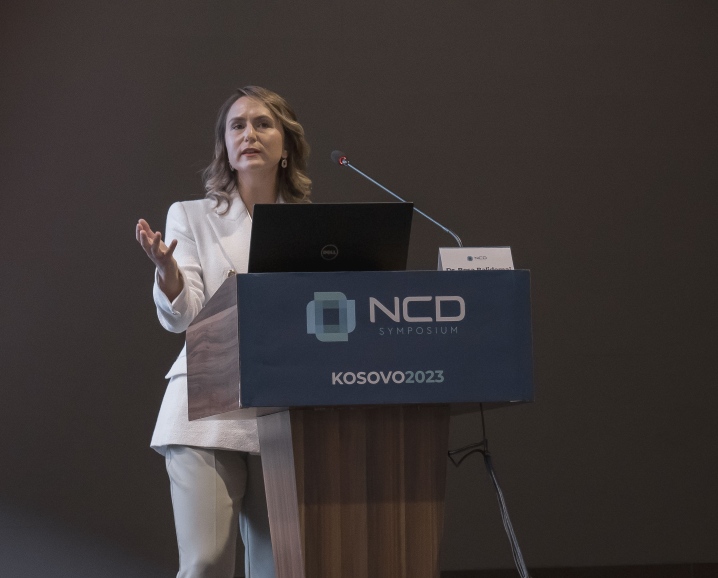
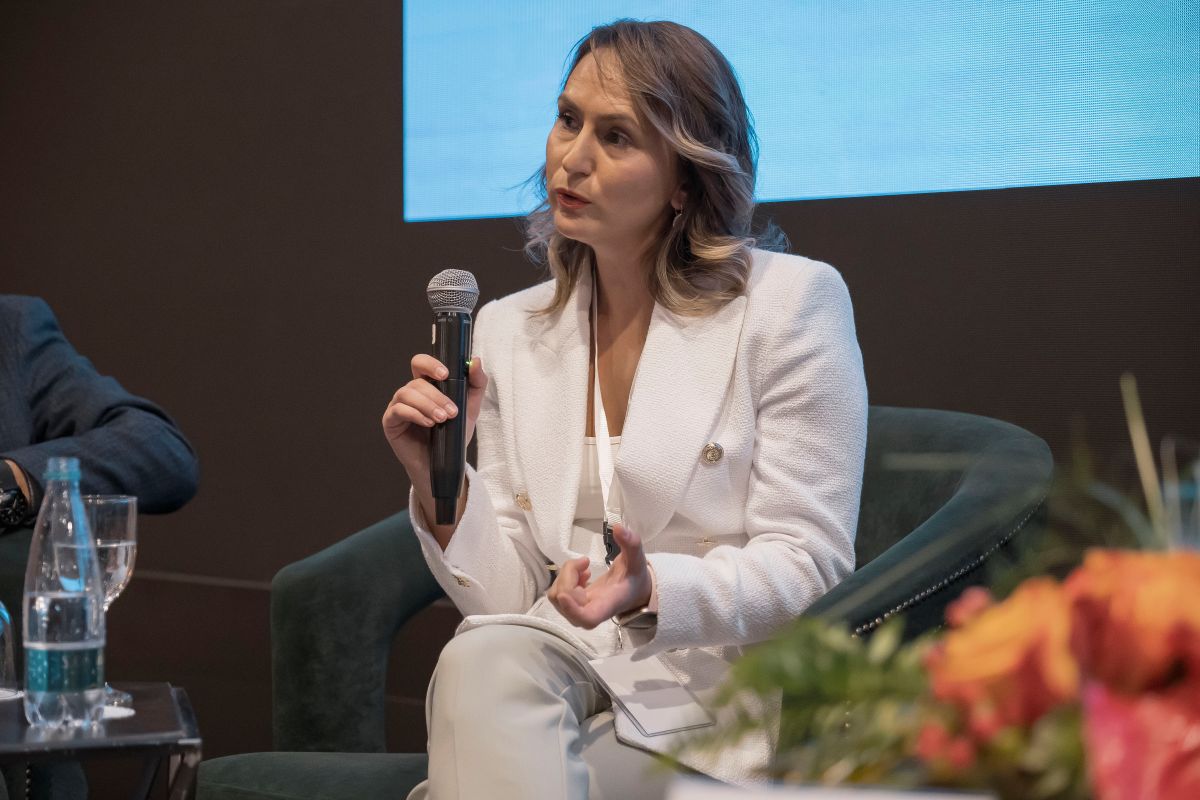
What advice would you offer to current students who are navigating their career paths?
My advice to students is: don’t give up. Sometimes things won’t go as you wish, and that’s okay. There will be moments when you feel lost or unsure, but keep going. Every step, even the hard ones, is part of your journey.
Be patient with yourself, and trust that things will fall into place with time. Keep learning, stay open to new opportunities, and follow what makes you feel excited and alive. Most of all, believe in yourself – you’re stronger than you think, and your path will become clearer as you move forward.
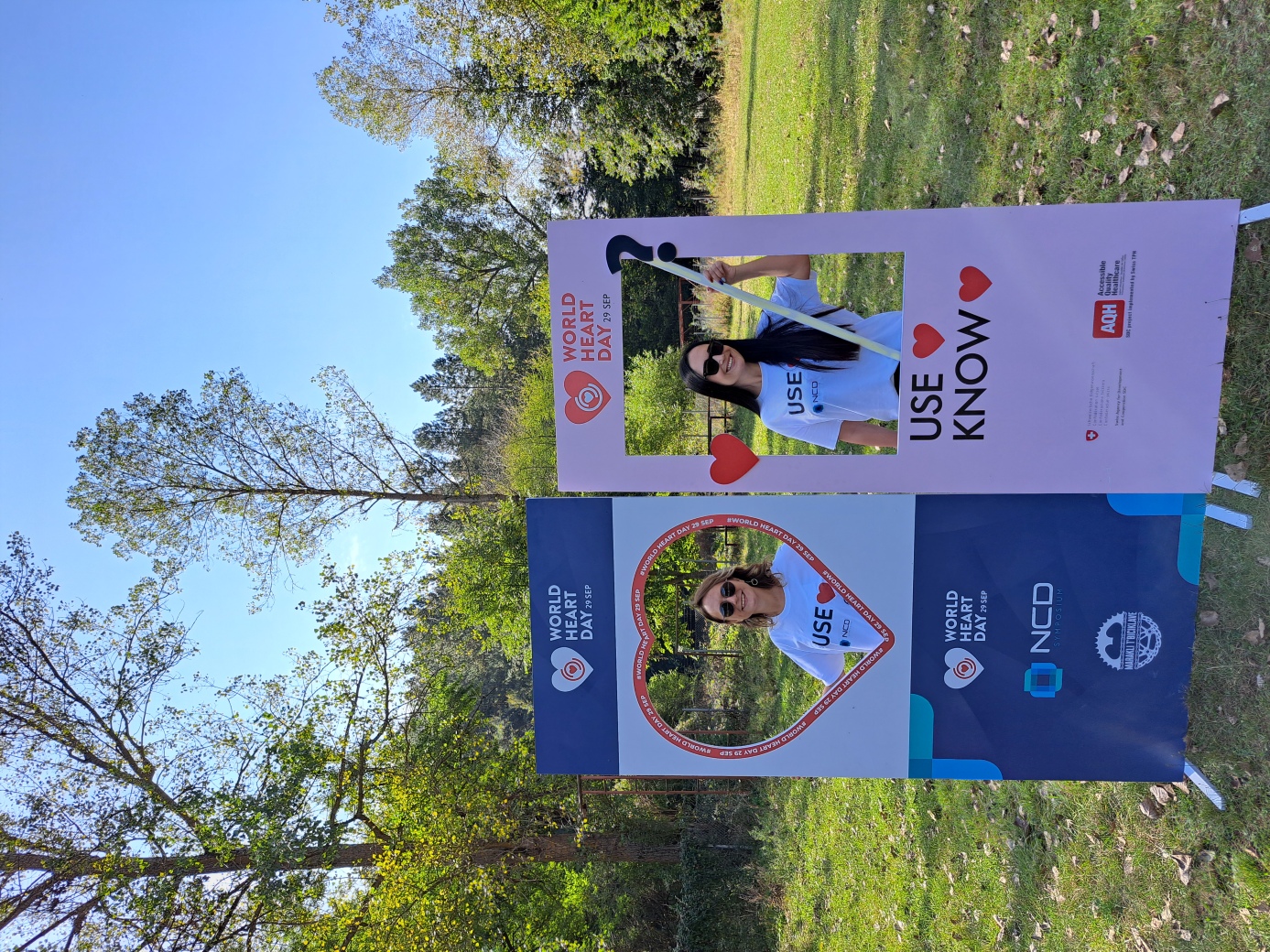
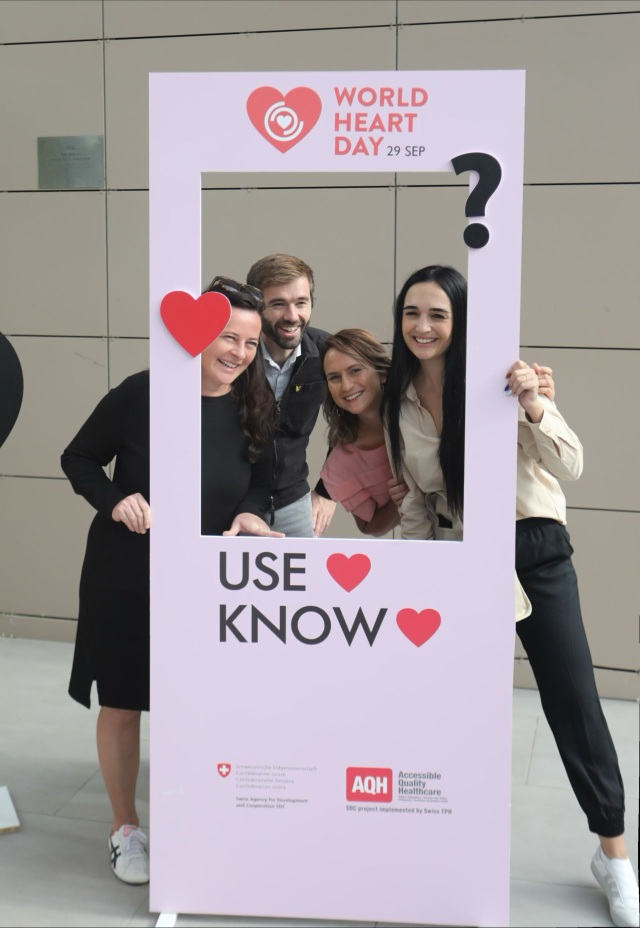
If you could inspire one change in the world, big or small, what would it be?
If I could inspire one change in the world, it would be to encourage stronger collaboration between scientists and policymakers. I believe that when scientists and policymakers work closely together, decisions are more likely to be based on solid evidence and tailored to the real needs of the population. This kind of collaboration can lead to smarter policies and better health outcomes for all.
Reach out to Ariana Bytyci Katanolli on LinkedIn.
